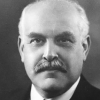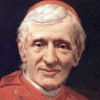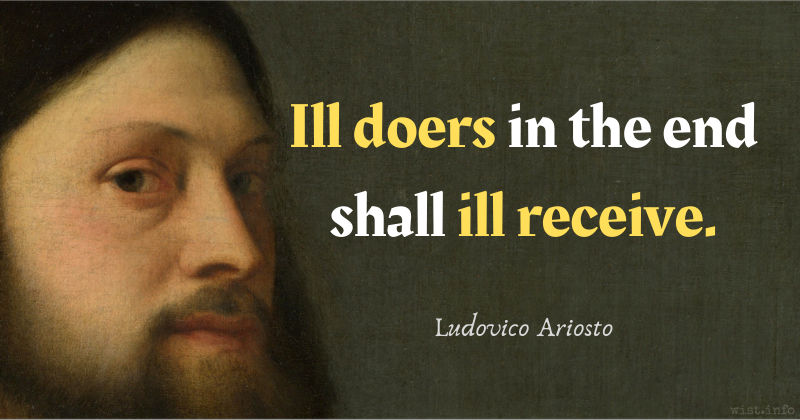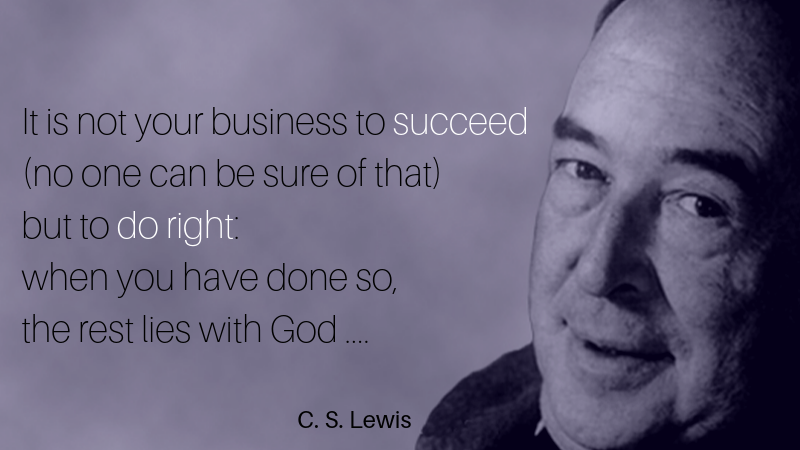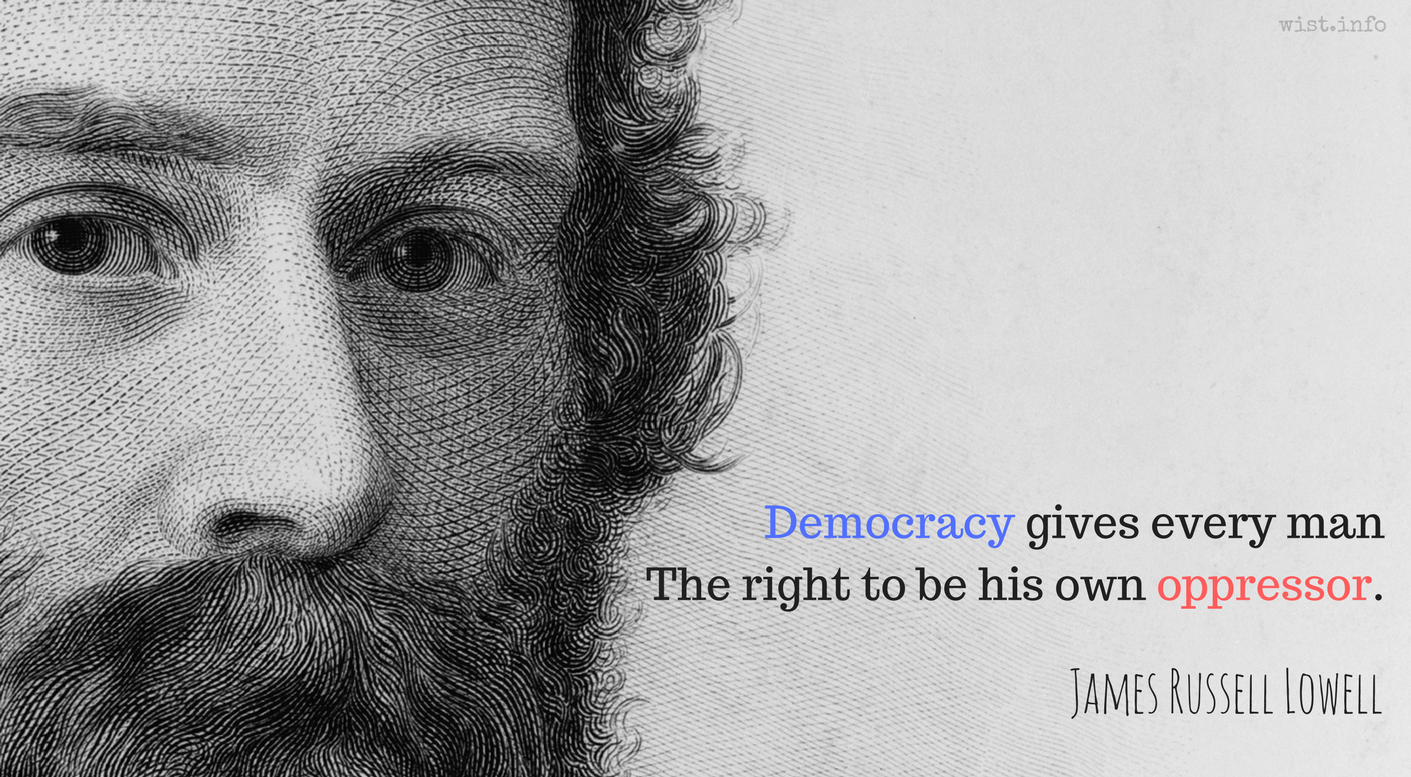Again, we should notice the force, effect, and consequences of inventions, which are nowhere more conspicuous than in those three which were unknown to the ancients; namely, printing, gunpowder, and the compass. For these three have changed the appearance and state of the whole world; first in literature, then in warfare, and lastly in navigation: and innumerable changes have been thence derived, so that no empire, sect, or star, appears to have exercised a greater power and influence on human affairs than these mechanical discoveries.
[Rursus, vim et virtutem et consequentias rerum inventarum notare juvat; quae non in aliis manifestius occurrunt, quam in illis tribus quae antiquis incognitae, et quarum primordia, licet recentia, obscura et ingloria sunt: Artis nimirum Imprimendi, Pulveris Tormentarii, et Acus Nauticae. Haec enim tria rerum faciem et statum in orbe terrarum mutaverunt: primum, in re literaria; secundum, in re bellica; tertium, in navigationibus: unde innumerae rerum mutationes sequutae sunt; ut non imperium aliquod, non secta, non stella, majorem efficaciam et quasi influxum super res humanas exercuisse videatur, quam ista mechanica exercuerunt.]
Francis Bacon (1561-1626) English philosopher, scientist, author, statesman
Instauratio Magna [The Great Instauration], Part 2 “Novum Organum [The New Organon],” Book 1, Aphorism # 129 (1620) [tr. Wood (1831)]
(Source)
(Source (Latin)). Alternate translations:
Again, it is well to observe the force and virtue and consequences of discoveries; and these are to be seen nowhere more conspicuously than in those three which were unknown to the ancients, and of which the origin, though recent, is obscure and inglorious; namely, printing, gunpowder, and the magnet. For these three have changed the whole face and state of things throughout the world; the first in literature, the second in warfare, the third in navigation; whence have followed innumerable changes; insomuch that no empire, no sect, no star seems to have exerted greater power and influence in human affairs than these mechanical discoveries.
[tr. Spedding (1858)]
Again, it is well to mark the force, virtue, and consequences of discoveries; and these occur nowhere more manifestly than in those which were unknown to the ancients, and whose origin, though recent, is obscure and inglorious; the Arts, namely, of Printing, of Gunpowder, and the Mariner's Compass. For these three have changed the face and condition of things all over the world; the first in letters, the second in war, the third in navigation. And hence numberless changes have followed; so that no government, no sect, no star, seems to have exercised greater power and influence over human affairs than these mechanical discoveries.
[tr. Johnson (1859)]
Again, it helps to notice the force, power and consequences of discoveries, which appear at their clearest in three things that were unknown to antiquity, and whose origins, though recent, are obscure and unsung: namely, the art of printing, gunpowder and the nautical compass. In fact these three things have changed the face and condition of things all over the globe: the first in literature; the second in the art of war; the third in navigation; and innumerable changes have followed; so that no empire or sect or star seems to have exercised a greater power and influence on human affairs than those mechanical things.
[tr. Silverthorne (2000)]
Notice the vigour of discoveries, their power to generate consequences. This is nowhere more obvious than in three discoveries that the ancients didn’t know and whose origins (all quite recent) were obscure and humdrum. I am talking about the arts of printing, gunpowder, and the nautical compass. These three have changed the whole aspect and state of things throughout the world -- the first in literature, the second in warfare, the third in navigation -- bringing about countless changes; so that there seems to have been no empire, no philosophical system, no star that has exerted greater power and influence in human affairs than these mechanical discoveries.
[tr. Bennett (2017)]
Quotations about:
consequences
Note not all quotations have been tagged, so Search may find additional quotes on this topic.
Whoever too precipitately yields
To anger, shall find sorrow at the last:
For wrath unbridled oft deceives mankind.[Οργή γάρ όστις ευθέως χαρίζεται ,
Κακώς τελευτά πλείστα γάρ σφάλλει βρoτούς .]Euripides (485?-406? BC) Greek tragic dramatist
Æolus [Αἴολος], frag. 31 (TGF) [tr. Wodhull (1809)]
(Source)
Nauck frag. 31, Barnes frag. 62, Musgrave frag.3. (Source (Greek)). Alternate translation:
Whoever yields to anger suffers a piteous end.
[Source]
A fool bolts pleasure, then complains of moral indigestion.
Minna Antrim (1861-1950) American epigrammatist, writer
Naked Truth and Veiled Allusions (1902)
(Source)
LEAR: Mend your speech a little,
Lest you may mar your fortunes.William Shakespeare (1564-1616) English dramatist and poet
King Lear, Act 1, sc. 1, l. 103ff (1.1.103-104) (1606)
(Source)
If people will bring dynamite into a powder factory, they must expect explosions.
Dorothy Sayers (1893-1957) English author, translator
Gaudy Night, ch. 5 [Miss Edwards] (1935)
(Source)
Death cancels our engagements, but it does not affect the consequences of our acts in life.
Katherine Anne Porter (1890-1980) American journalist, essayist, author, political activist [b. Callie Russell Porter]
Letter draft to Mary Doherty (1932-10-21)
(Source)
In Isabel Bayley, ed., Letters of Katherine Anne Porter, Sec. 2 (1990). Discussing the suicide of her friend, Hart Crane.
Consequences are unpitying.
George Eliot (1819-1880) English novelist [pseud. of Mary Ann Evans]
Adam Bede, Book 1, ch. 16 “Links” [Mr. Irwine] (1859)
(Source)
Oh, if at every moment of our lives we could know the consequences of some of the utterings, thoughts and deeds that seem so trivial and unimportant at the time! And should we not conclude from such examples that there is no such thing in life as unimportant moments devoid of meaning for the future?
Isabelle Eberhardt (1877-1904) Swiss-Russian explorer and author [Si Mahmoud Saadi]
The Passionate Nomad: The Diary of Isabelle Eberhardt , “26 November 1901” (1987)[tr. de Voogd]
(Source)
For what is there more hideous than avarice, more brutal than lust, more contemptible than cowardice, more base than stupidity and folly? Well, then, are we to call those persons unhappy, who are conspicuous for one or more of these, on account of some injuries, or disgraces, or sufferings to which they are exposed, or on account of the moral baseness of their sins?
[Quid enim foedius auaritia, quid immanius libidine, quid contemptius timiditate, quid abiectius tarditate et stultitia dici potest? Quid ergo? Eos qui singulis uitiis excellunt aut etiam pluribus, propter damna aut detrimenta aut cruciatus aliquos miseros esse dicimus, an propter uim turpitudinemque uitiorum?]
Marcus Tullius Cicero (106-43 BC) Roman orator, statesman, philosopher
De Legibus [On the Laws], Book 1, ch. 19 / sec. 51 (1.19/1.51) [Marcus] (c. 51 BC) [tr. Barham/Yonge (1878)]
(Source)
(Source (Latin)). Alternate translations:
For what is there more hideous than avarice, more ferocious than lust, more contemptible than cowardice, more base than stupidity and folly? Well, therefore, may we style unhappy, those persons in whom any one of these vices is conspicuous, not on account of the disgraces or losses to which they are exposed, but on account of the moral baseness of their sins.
[tr. Barham (1842)]
For what can be thought of that is more loathsome than greed, what more inhuman than lust, what more contemptible than cowardice, what more degraded than stupidity and folly? Well, then, shall we say that those who are sunk deepest in a single vice, or in several, are wretched on account of any penalties or losses or tortures which they incur, or on account of the base nature of the vices themselves?
[tr. Keyes (1928)]
What can be called more revolting than greed, more bestial than lust, more despicable than cowardice, more abject than dullness and stupidity? What then? Take those people who are conspicuous for one (or more than one) vice. Do we call them wretched because of the losses or damages or pain they suffer, or because of the power and ugliness of their vices?
[tr. Rudd (1998)]
What is uglier than greed, what is more horrible than lust, what is more contemptible than cowardice, what is lower than sloth and stupidity? What then? People who are remarkable for single vices or even for several -- do we call them wretched because of material losses or torture, or because of the great dishonor from the vices themselves?
[tr. Zetzel (1999)]
What could be called fouler than avarice, what more monstrous than lust, what more scorned than cowardice, what more despicable than dullness and foolishness? What then? Do we say about those who are conspicuous for their individual vices, or even many vices, that they are wretched because of losses or damages or tortures, or because of the significance and the disgrace of their vices?
[tr. Fott (2013)]
Ah, God’s avenging justice! who could heap up
suffering and pain as strange as I saw here?
How can we let our guilt bring us to this?[Ahi giustizia di Dio! tante chi stipa
nove travaglie e pene quant’io viddi?
e perché nostra colpa sì ne scipa?]Dante Alighieri (1265-1321) Italian poet
The Divine Comedy [Divina Commedia], Book 1 “Inferno,” Canto 7, l. 19ff (7.19-21) (1309) [tr. Musa (1971)]
(Source)
(Source (Italian)). Alternate translations:
Great is God's Justice; as increase with Crimes
Their Punishments, which here I many saw:
But why do we encourage this increase?
[tr. Rogers (1782)]
Justice of Heav'n, from thine avenging hand
What nameless toils and tortures fill the strand!
Ah! why on mortal failings so severe!
[tr. Boyd (1802), st. 4]
Almighty Justice! in what store thou heap’st
New pains, new troubles, as I here beheld!
Wherefore doth fault of ours bring us to this?
[tr. Cary (1814)]
Justice of God! who might such travail heap,
Such unimagined pangs as there I saw?
And wherefore drains our guilt the cup so deep?
[tr. Dayman (1843)]
Ah, Justice Divine! who shall tell in few the many fresh pains and travails that I saw? and why does guilt of ours thus waste us?
[tr. Carlyle (1849)]
Ah! justice of our God! how it heaps up
New troubles and new punishments I saw,
And fault of ours such penalty to draw!
[tr. Bannerman (1850)]
Oh, God's great justice! who heaps up the mass
Of pains and labors new which meet mine eye?
Why does our crime so tear and torture us?
[tr. Johnston (1867)]
Justice of God, ah! who heaps up so many
New toils and sufferings as I beheld?
And why doth our transgression waste us so?
[tr. Longfellow (1867)]
Ah justice of God! who crowds all the new labours and pains that I saw? and wherefore does our sin so bring us low?
[tr. Butler (1885)]
Justice of God! who heapeth up such store
Of novel toils and pains which I have seen!
And why doth sin in such profusion pour?
[tr. Minchin (1885)]
Ah, Justice of God! Who heapeth up so many new travails and penalties as I saw? And why doth our sin so waste us?
[tr. Norton (1892)]
Ah me! Justice of God, that heapeth up un-heard-of toils and tortures in numbers such as I beheld! And why doth man's transgression scourge man so?
[tr. Sullivan (1893)]
Justice of God! that it can pack together
Such novel pains and travails as I witnessed!
And why is our own fault thus our destruction?
[tr. Griffith (1908)]
Ah, Justice of God, who crams together
all the new toils and pains that I saw?
And why does our sin so lay us waste?
[tr. Sinclair (1939)]
Ah! Divine Justice! Who crowds throe on throe,
Toil upon toil, such as mine eyes now met?
And why doth guilt of ours consume us so?
[tr. Binyon (1943)]
God's justice! Who shall tell the agonies,
Heaped thick and new before my shuddering glance?
Why must our guilt smite us with strokes like this?
[tr. Sayers (1949)]
O Holy Justice,
who could relate the agonies I saw!
What guilt is man that he can come to this?
[tr. Ciardi (1954)]
Ah, justice of God! who crams together so many new travails and penalties as I saw? And why does our guilt so waste us?
[tr. Singleton (1970)]
Justice of God! Who has amassed as many
strange tortures and travails as I have seen?
Why do we let our guilt consume us so?
[tr. Mandelbaum (1980)]
Justice of God! Who except you could gather
As many pains and punishments as I saw?
And why is it our faults must so devour us?
[tr. Sisson (1981)]
Justice of God! Who is it hat heaps together
So much peculiar torture and travail?
How is it that we choose to sin and wither?
[tr. Pinsky (1994), ll. 17-19]
Ah, justice of God! who stuffs in so many strange
travails and punishments as I saw? and why does
our own guilt so destroy us?
[tr. Durling (1996)]
O Divine Justice! Who can tell the many new pains and troubles, that I saw, and why our guilt so destroys us?
[tr. Kline (2002)]
God in all justice! I saw there so many
new forms of travail, so tightly crammed. By whom?
How can our guilt so rend and ruin us?
[tr. Kirkpatrick (2006)]
Ah, Justice of God, who heaps up
such strange punishment and pain as I saw there?
And why do our sins so waste us?
[tr. Hollander/Hollander (2007)]
Ah, God of Justice, Who does this, scraping
Together the brand-new pains and punishments
I saw? And why should sinning cause such wastage?
[tr. Raffel (2010)]
Merciful God! Who gets it in,
This wretched harvest? What accounts for it?
And why to such pain are we led by sin?
[tr. James (2013), ll. 18-20]
Sowing is not so hard as reaping.
[Säen is nicht so beschwerlich als ernten.]
Johann Wolfgang von Goethe (1749-1832) German poet, statesman, scientist
Elective Affinities [Die Wahlverwandtschaften], Part 2, ch. 5, “From Ottilie’s Journal [Aus Ottiliens Tagebuche]” (1809) [tr. Hollingdale (1971)]
(Source)
But heard are the voices,
Heard are the sages,
The Worlds and the Ages:
“Choose well: your choice is
Brief, and yet endless.”[Doch rufen von drüben
Die Stimmen der Geister
Die Stimmen der Meister:
Bersäumt nich zu üben
Die Kräfte des Guten.]Johann Wolfgang von Goethe (1749-1832) German poet, statesman, scientist
“Symbolum” (1815) [tr. Carlyle (1843)]
(Source)
(Source (German)).
Carlyle's loose translation first appears in Past and Present, Book 2, ch. 17 "The Beginnings" (1843), then is expanded in a speech at the University of Edinburgh (2 Apr 1866), reprinted (with Goethe's original) in On the Choice of Books (1877).
"Choose well: your choice is brief and yet endless," is sometimes attributed to Ella Winter. She references it in an anecdote in And Not to Yield: An Autobiography (1963).
Without being forgiven, released from the consequences of what we have done, our capacity to act would, as it were, be confined to one single deed from which we could never recover; we would remain victims of its consequences forever, not unlike the sorcerer’s apprentice who lacked the magic formula to break the spell.
Hannah Arendt (1906-1975) German-American philosopher, political theorist
The Human Condition, Part 5, ch. 33 (1958)
(Source)
A blueprint for disaster in any society is when the elite are capable of insulating themselves.
Jared Diamond (b. 1937) American geographer, historian, ornithologist, author
“Choosing Success,” interview by Catherine Sepp, National Review (30 Jun 2005)
(Source)
You choose, you live the consequences. Every yes, no, maybe, creates the school you call your personal experience.
Acts and their consequences are the things by which our fellows judge us. Anything else, and all that you get is a cheap feeling of moral superiority by thinking how you would have done something nicer if it had been you. So as for the rest, leave it to heaven. I’m not qualified.
Vile deeds are vile, no matter whether we know or do not know what, after death, will be the fate of the doer. We know, at least, what his fate is now, namely to be wedded to the vileness.
Felix Adler (1851-1933) German-American educator
Life and Destiny, Lecture 9 “Ethical Outlook” (1903)
(Source)
He is free to make the wrong choice, but not free to succeed with it. He is free to evade reality, he is free to unfocus his mind and stumble blindly down any road he pleases, but not free to avoid the abyss he refuses to see. Knowledge, for any conscious organism, is the means of survival; to a living consciousness, every “is” implies an “ought.” Man is free to choose not to be conscious, but not free to escape the penalty of unconsciousness: destruction. Man is the only living species that has the power to act as his own destroyer — and that is the way he has acted through most of his history.
Ayn Rand (1905-1982) Russian-American writer, philosopher
“The Objectivist Ethics,” University of Wisconsin Symposium on “Ethics in Our Time” (9 Feb 1961)
(Source)
It is easy to dodge our responsibilities, but we cannot dodge the consequences of dodging our responsibilities.
Josiah Stamp (1880-1941) English industrialist, economist, statistician, banker
(Attributed)
First attributed to Stamp in "Gems of Thought," Kingston Daily Freeman [New York] (3 Jan 1928). More discussion here.
You must make up your mind to act decidedly and take the consequences. No good is ever done in this world by hesitation.
T. H. Huxley (1825-1895) English biologist [Thomas Henry Huxley]
Letter to Anton Dohrn (1873-10-17)
(Source)
Another point of disagreement is not factual but involves the ethical/moral principle […] sometimes referred to as the “politics of moral witness.” Generally associated with the religious left, secular leftists implicitly invoke it when they reject LEV on the grounds that “a lesser of two evils is still evil.” Leaving aside the obvious rejoinder that this is exactly the point of lesser evil voting — i.e. to do less evil, what needs to be challenged is the assumption that voting should be seen a form of individual self-expression rather than as an act to be judged on its likely consequences. […] The basic moral principle at stake is simple: not only must we take responsibility for our actions, but the consequences of our actions for others are a far more important consideration than feeling good about ourselves.
Noam Chomsky (b. 1928) American linguist and activist
“An Eight Point Brief for LEV (Lesser Evil Voting)” (15 Jun 2016) [with John Halle]
(Source)
We can believe what we choose. We are answerable for what we choose to believe.
John Henry Newman (1801-1890) English prelate, Catholic Cardinal, theologian
Letter to Mrs. William Froude (27 Jun 1848)
(Source)
In C. S. Dessain (ed.), Letters and Diaries of John Henry Newman, vol. 12 "Rome to Birmingham" (1961).
Politics is, among other things, the art of anticipating consequences, and even trying to anticipate unfamiliar consequences.
Irving Howe (1920-1993) American literary and social critic [b. Irving Horenstein]
“The Agony of the Campus,” Dissent #16 (Sep-Oct 1969)
(Source)
Ill doers in the end shall ill receive.
[Chi mal opra, male al fine aspetta.]
Ludovico Ariosto (1474-1533) Italian poet
Orlando Furioso, Canto 37, st. 106, l. 6 (1532) [tr. Rose (1831)]
(Source)
There is always some peace in having submitted to the right. Don’t spoil it by worrying about the results, if you can help it. It is not your business to succeed (no one can be sure of that) but to do right: when you have done so, the rest lies with God ….
C. S. Lewis (1898-1963) English writer, literary scholar, lay theologian [Clive Staples Lewis]
Letter to Arthur Greeves, Collected Letters of C. S. Lewis, Vol. 2: 1931-1949 (2004)
(Source)
Every one sees what you appear to be, few really know what you are, and those few dare not oppose themselves to the opinion of the many, who have the majesty of the state to defend them; and in the actions of all men, and especially of princes, which it is not prudent to challenge, one judges by the result. For that reason, let a prince have the credit of conquering and holding his state, the means will always be considered honest, and he will be praised by everybody because the vulgar are always taken by what a thing seems to be and by what comes of it.
Niccolò Machiavelli (1469-1527) Italian politician, philosopher, political scientist
The Prince, ch. 18 (1513) [tr. Marriott (1908)]
(Source)
Origin of the paraphrase "The ends justify the means," which is generally attributed to Machiavelli.
Most men spend the best part of their lives making the remaining part wretched.
[La plupart des hommes emploient la meilleure partie de leur vie à rendre l’autre misérable.]
Jean de La Bruyère (1645-1696) French essayist, moralist
The Characters [Les Caractères], ch. 11 “Of Mankind [De l’Homme],” § 102 (11.102) (1688) [tr. Stewart (1970)]
(Source)
(Source (French)). Alternate translations:
The greatest part of mankind employ their first years to make their last miserable.
[Bullord ed. (1696)]
The greatest part of Mankind imploy their first Years to make their last miserable.
[Curll ed. (1713)]
The greatest part of Mankind employ their first Years to make their last miserable. [Browne ed. (1752)]
Most men employ the first years of their life in making the last miserable.
[tr. Van Laun (1885)]
Most men make use of the first part of their life to render the last part miserable.
[Source]
BRUTUS: The abuse of greatness is, when it disjoins
Remorse from power.William Shakespeare (1564-1616) English dramatist and poet
Julius Caesar, Act 2, sc. 1, l. 19ff (2.1.19-20) (1599)
(Source)
You never can tell when you do an act
Just what the result will be;
But with every deed you are sowing a seed,
Though the harvest you may not see.Ella Wheeler Wilcox (1850-1919) American author and poet.
“You Never Can Tell,” Custer And Other Poems (1896)
(Source)
As the means, so the end.
Mohandas Gandhi (1869-1948) Indian philosopher and nationalist [Mahatma Gandhi]
In Young India (17 Jul 1924)
Compare to this.
Consider and act with reference to the true ends of existence. This world is but the vestibule of an immortal life. Every action of our lives touches on some chord that will vibrate in eternity.
Edwin Hubbell Chapin (1814-1880) American clergyman
(Attributed)
(Source)
Quoted in Charles Northend, Memory Gems (1890).
Variant: "Every action of your life touches on some chord that will vibrate in eternity." ["Advice to the Young," quoted in Charles W. Sanders, Sanders' Union Fourth Reader (1873)]
People who live long, who will drink of the cup of life to the very bottom, must expect to meet with some of the usual dregs.
Benjamin Franklin (1706-1790) American statesman, scientist, philosopher, aphorist
Letter to M. Le Veillard (15 Apr 1787)
(Source)
If you leap into a Well, Providence is not bound to fetch you out.
Thomas Fuller (1654-1734) English physician, preacher, aphorist, writer
Gnomologia: Adages and Proverbs, #2795 (1732)
(Source)
And whereas sense and memory are but knowledge of fact, which is a thing past and irrevocable, science is the knowledge of consequences, and dependence of one fact upon another; by which, out of that we can presently do, we know how to do something else when we will, or the like, another time: because when we see how anything comes about, upon what causes, and by what manner; when the like causes come into our power, we see how to make it produce the like effects.
Our anger and annoyance are more detrimental to us than the things themselves which anger or annoy us.
Marcus Aurelius (AD 121-180) Roman emperor (161-180), Stoic philosopher
Meditations, Book 11, #15 [tr. Staniforth (1964)]
(Source)
Alternate translations:
How many things may and do oftentimes follow upon such fits of anger and grief; far more grievous in themselves, than those very things which we are so grieved or angry for.
[tr. Casaubon (1634)]
Consider that our anger and impatience often proves much more mischievous than the provocation could possibly have done.
[tr. Collier (1701), #18]
Consider how much more pain is brought on us by the anger and vexation caused by such acts than by the acts themselves, at which we are angry and vexed.
[tr. Long (1862)]
Consider that our anger and impatience often prove much more mischievous than the things about which we are angry or impatient.
[tr. Zimmern (1887)]
How much more grievous are what fits of anger and the consequent sorrows bring than the actual things are which produce in us those angry fits and sorrows.
[tr. Farquharson (1944)]
Anger and the sorrow it produces are far more harmful than the things that make us angry.
[tr. Needleman/Piazza (2008)]
My principle is to do whatever is right, and leave consequences to him who has the disposal of them.
Thomas Jefferson (1743-1826) American political philosopher, polymath, statesman, US President (1801-09)
Letter to George Logan (3 Oct 1813)
(Source)
A man’s character is most evident by how he treats those who are not in a position either to retaliate or reciprocate.
Paul Eldridge (1888-1982) American educator, novelist, poet
“Lanterns in the Night,” Maxim 41, The Jewish Forum (Aug 1948)
Restated by Eldridge in Maxims for a Modern Man, #1198 (1965): "A man is most accurately judged by how he treats those who are not in a position either to retaliate or to reciprocate."
The same sentiment is also made or attributed to Ann Landers, Abigail Van Buren, Malcolm Forbes, James Miles, and (without any reference found) Goethe and Samuel Johnson. A more convoluted version can be found in the 19th Century by Charles Spurgeon.
More examination of this quotation:
We have an obligation to one another, responsibilities and trusts. That does not mean we must be pigeons, that we must be exploited. But it does mean that we should look out for one another when and as much as we can; and that we have a personal responsibility for our behavior; and that our behavior has consequences of a very real and profound nature.
J. Michael (Joe) Straczynski (b. 1954) American screenwriter, producer, author [a/k/a "JMS"]
rec.arts.sf.tv.babylon5.moderated, “At The Midpoint (Spoilers for everything)” (7 Apr 1995)
(Source)
Cautious, careful people, always casting about to preserve their reputation and social standing, never can bring about a reform. Those who are really in earnest must be willing to be anything or nothing in the world’s estimation, and publicly and privately, in season and out, avow their sympathy with despised and persecuted ideas and their advocates, and bear the consequences.
Alas, after a certain age, every man is responsible for his face.
[Hélas! après un certain âge tout homme est responsable do son visage.]
When you have prayed for victory you have prayed for many unmentioned results which follow victory — must follow it, cannot help but follow it. Upon the listening spirit of God the Father fell also the unspoken part of the prayer. He commandeth me to put it into words. Listen!
“O Lord our Father, our young patriots, idols of our hearts, go forth to battle — be Thou near them! With them — in spirit — we also go forth from the sweet peace of our beloved firesides to smite the foe. O Lord our God, help us to tear their soldiers to bloody shreds with our shells; help us to cover their smiling fields with the pale forms of their patriot dead; help us to drown the thunder of the guns with the shrieks of their wounded, writhing in pain; help us to lay waste their humble homes with a hurricane of fire; help us to wring the hearts of their unoffending widows with unavailing grief; help us to turn them out roofless with their little children to wander unfriended the wastes of their desolated land in rags and hunger and thirst, sports of the sun flames of summer and the icy winds of winter, broken in spirit, worn with travail, imploring Thee for the refuge of the grave and denied it — for our sakes who adore Thee, Lord, blast their hopes, blight their lives, protract their bitter pilgrimage, make heavy their steps, water their way with their tears, stain the white snow with the blood of their wounded feet! We ask it, in the spirit of love, of Him Who is the Source of Love, and Who is the ever-faithful refuge and friend of all that are sore beset and seek His aid with humble and contrite hearts. Amen.”
There are in nature neither rewards nor punishments — there are consequences.
Robert Green Ingersoll (1833-1899) American lawyer, agnostic, orator
“The Christian Religion” (1881)
(Source)
To let a sudden fit of anger make you forget the dangers you risk for yourself and for those who are nearest and dearest to you — is this not clouded judgment?
[A. 一朝之忿、忘其身以及其親、非惑與。]
[B. 一朝之忿忘其身以及其亲非惑与]
Confucius (c. 551- c. 479 BC) Chinese philosopher, sage, politician [孔夫子 (Kǒng Fūzǐ, K'ung Fu-tzu, K'ung Fu Tse), 孔子 (Kǒngzǐ, Chungni), 孔丘 (Kǒng Qiū, K'ung Ch'iu)]
The Analects [論語, 论语, Lúnyǔ], Book 12, verse 21 (12.21) (6th C. BC – AD 3rd C.) [tr. Chin (2014)]
(Source)
Waley suggests the internal rhymes in both the questions in 12.21 and this particular answer mean they are quotations from an outside source, a "didactic poem," and thus carry additional meaning now lost.
(Source (Chinese) A, B). Alternate translations:
For a morning's anger to disregard one's own life, and involve that of his parents; -- is not this a case of delusion?
[tr. Legge (1861)]
And as to illusions, is not one morning's fit of anger, causing a man to forget himself, and even involving the consequences those who are near and dear to him -- is not that an illusion?
[tr. Jennings (1895)]
If a man allows himself to lose his temper and forget himself of a morning, in such a way as to become careless for the safety of is own person and for the safety of his parents and friends: -- is that not a case of a great delusion in life?
[tr. Ku Hung-Ming (1898)]
For a morning's anger to forget his own safety and involve that of his relatives, is not this irrational?
[tr. Soothill (1910)]
For one morning’s temper to jeopard one's life and even that of one's relatives, isn’t that hallucination?
[tr. Pound (1933)]
Because of a morning's blind rage to forget one's own safety and even endanger one's kith and kin, is that not a case of divided mind?
[tr. Waley (1938)]
In a moment’s burst of anger to forget oneself and one’s family. Wouldn’t this be utter confusion?
[tr. Ware (1950)]
To let a sudden fit of anger make you forget the safety of your own person or even that of your parents, is that not misguided judgment?
[tr. Lau (1979)]
To be oblivious of one's own person and even of one's own parents all because of a morning's anger -- is this not a confusion?
[tr. Dawson (1993)]
To endanger oneself and one's kin in a sudden fit of anger: is this not an instance of incoherence?
[tr. Leys (1997)]
In a fit of rage, you forget yourself and even your parents -- is that not delusion?
[tr. Huang (1997)]
If one has any anger so that one forgets one's pro0per behavior to take the anger upon the relatives, is not one confused?
[tr. Cai/Yu (1998), #307]
In a moment of rage to forget not only one's own person but even one's parents -- is this not being in a quandary?
[tr. Ames/Rosemont (1998)]
For the anger of a morning, to forget one's self and even one's kin, is that not a contradiction?
[tr. Brooks/Brooks (1998)]
To endanger yourself and your family, all in a morning's blind rage -- is that not delusion?
[tr. Hinton (1998)]
To forget yourself in a moment of anger and thereby bring ruin upon both you and your family -- is this not an example of confusion?
[tr. Slingerland (2003)]
Because of one morning's anger, to forget your own safety and even endanger those close to you -- this is faulty thinking, isn't it?
[tr. Watson (2007)]
If you act out of animus with the consequence of hurting yourelf and yoru loved ones, is that an example of delusion?
[tr. Li (2020)]
A common paraphrase of this is "When anger rises, think of the consequences." This is attributed to Confucius in Kang-Hi (K'ang-hsi, Kangxi) The Sacred Edict, Maxim #16 (1670, 1724) [tr. Milne (1817)]. An alternate translation is "In anger, think of the trouble" [tr. Baller (1892), ch. 16, sec. 15]
There is only one basic human right, the right to do as you damn well please. And with it comes the only basic human duty, the duty to take the consequences.
P. J. O'Rourke (b. 1947) American humorist, editor
“The Liberty Manifesto,” speech, Cato Institute, Washington, DC (1993-05-06)
(Source)
Reprinted in Age and Guile Beat Youth, Innocence, and a Bad Haircut (1995).
In no sense do I advocate evading or defying the law, as would the rabid segregationist. That would lead to anarchy. One who breaks an unjust law must do so openly, lovingly, and with a willingness to accept the penalty. I submit that an individual who breaks a law that conscience tells him is unjust, and who willingly accepts the penalty of imprisonment in order to arouse the conscience of the community over its injustice, is in reality expressing the highest respect for law.


















